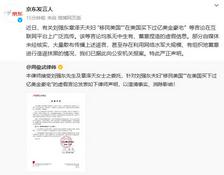下载地址:https://github.com/BoD/android-contentprovider-generator
A tool to generate Android ContentProviders.
It takes a set of entity (a.k.a "table") definitions as the input, and generates:
ContentProvider classSQLiteOpenHelper classColumns class per entityCursor class per entityContentValues class per entitySelection class per entityModel interface per entityBean class per entity (optionally)There are two possible ways to generate the code:
The Gradle plugin is perhaps the 'cleaner' way in the sense that the generated code won't be part of the source (not checked into VCS). The configuration is declared inside the Gradle script which allows to update it easily.
Alternatively, a one-time generation can be done (typically at the beginning of the project.) The generated code is part of the source and checked into VCS: this allows you to modify it if you need to.
You can decide which option is the best for your project :)
Add this to your app's build.gradle:
buildscript {
dependencies {
classpath 'org.jraf:acpg-gradle-plugin:1.13.1'
}
}
apply plugin: 'org.jraf.acpg.gradleplugin'
(...)
// This is where you declare a few parameters used to generate the code
acpg {
// Where to find the entity files (see 'Entity files' below)
// Optional - default value: 'etc/acpg' in the root project
entitiesDir file('etc/acpg-entities')
// Java package in which all the code will be generated
providerJavaPackage 'com.example.app.provider'
// ContentProvider authority
// "${applicationId}" will be substituted by BuildConfig.APPLICATION_ID in the generated code
authority '${applicationId}.provider'
// Name of the provider class
providerClassName 'ExampleProvider'
// Name of the db file
databaseFileName 'example.db'
// Version of the db
databaseVersion 1
// Name of the SQLiteOpenHelper class
// Optional - default value: providerClassName + "SQLiteOpenHelper"
sqliteOpenHelperClassName 'ExampleSQLiteOpenHelper'
// Name of a subclass of BaseSQLiteOpenHelperCallbacks
// Optional - this allows you to get called when the db is opened/created/upgraded
sqliteOpenHelperCallbacksClassName 'ExampleSQLiteOpenHelperCallbacks'
// Whether to enable foreign keys support (see 'Advanced usage' below)
// Optional - default value: false
enableForeignKeys true
// Whether @Nullable/@NonNull annotations will be used in the generated code
// Optional - default value: false
useAnnotations true
// Whether support library classes are used or the Android SDK ones (e.g. CursorLoader)
// Optional - default value: false
useSupportLibrary true
// Whether to generate a 'Beans' class for each entity
// Optional - default value: true
generateBeans true
// Name of a boolean field in BuildConfig to enable/disable debug logging in the generated code
// Optional - default value: "DEBUG"
debugLogsFieldName 'LOG_DEBUG_PROVIDER'
// Version of the tool syntax (must be 4)
// The allows to break the build immediately if an incompatible version of the tool is used. Safety first!
// Optional - default value: 4
syntaxVersion 4
}The configuration is the same, except you declare it in a file named _config.json
in the same folder as the entity files.
Here is an example:
{
"syntaxVersion": 4,
"packageName": "com.example.app",
"providerJavaPackage": "com.example.app.provider",
"authority": "${applicationId}.provider",
"providerClassName": "ExampleProvider",
"databaseFileName": "example.db",
"databaseVersion": 1,
"sqliteOpenHelperClassName": "ExampleSQLiteOpenHelper",
"sqliteOpenHelperCallbacksClassName": "ExampleSQLiteOpenHelperCallbacks",
"enableForeignKeys": true,
"useAnnotations": true,
"useSupportLibrary": true,
"generateBeans": true,
"debugLogsFieldName": "LOG_DEBUG_PROVIDER"
}About packageName: this must be the same as the value of the package attribute in your manifest.
Not to be confused with the applicationId (see https://developer.android.com/studio/build/application-id.html)
Download the acpg-cli-1.13.1.jar file here:
https://github.com/BoD/android-contentprovider-generator/releases/latest
java -jar acpg-cli-1.13.1.jar -i <input folder> -o <output folder>
_config.json and your entity json filesCreate one file per entity, naming it <entity_name>.json.
Inside each file, declare your fields (a.k.a "columns") with a name and a type.
You can also optionally declare a default value, an index flag, a documentation and a nullable flag.
Currently the type can be:
String (SQLite type: TEXT)Integer (INTEGER)Long (INTEGER)Float (REAL)Double (REAL)Boolean (INTEGER)Date (INTEGER)byte[] (BLOB)enum (INTEGER).You can also optionally declare table constraints.
Here is a person.json file as an example:
{
"documentation": "A human being which is part of a team.",
"fields": [
{
"documentation": "First name of this person. For instance, John.",
"name": "first_name",
"type": "String",
"defaultValue": "John"
},
{
"documentation": "Last name (a.k.a. Given name) of this person. For instance, Smith.",
"name": "last_name",
"type": "String",
"nullable": true,
"defaultValue": "Doe"
},
{
"name": "age",
"type": "Integer",
"index": true
},
{
"name": "gender",
"type": "enum",
"enumName": "Gender",
"enumValues": [
"MALE",
"FEMALE",
{"OTHER": "Value to use when neither male nor female"}
],
"nullable": false
}
],
"constraints": [
{
"name": "unique_name",
"definition": "UNIQUE (first_name, last_name) ON CONFLICT REPLACE"
}
],
"defaultOrder": "first_name, last_name, age DESC"
}Notes:
_id primary key field is automatically (implicitly) declared for all entities. It must not be declared in the json file.nullable is optional (true by default).documentation is present the value will be copied in Javadoc blocks in the generated code.constraints and defaultOrder sections are optionalA more comprehensive sample is available in the sample-app/etc/acpg folder.
You can have a look at the corresponding generated code in the etc/sample-generated-code folder.
By convention, you should name your entities and fields in lower case with words separated by '_', like in the example above.
header.txt file (optional)If a header.txt file is present, its contents will be inserted at the top of every generated file.
Selection class as shown in this example:PersonSelection where = new PersonSelection();
where.firstName("John").or().age(42);
Cursor c = context.getContentResolver().query(where.uri(), projection,
where.sel(), where.args(), null);Cursor in the corresponding wrapper class. You can then use
the generated getters directly as shown in this example:PersonCursor person = new PersonCursor(c);
String lastName = person.getLastName();
Long age = person.getAge();query (or delete) method:PersonSelection where = new PersonSelection();
where.firstName("John").or().age(42).orderByFirstName();
PersonCursor person = where.query(context);
person.moveToNext();
String lastName = person.getLastName();
Long age = person.getAge();or, use a CursorLoader:
where.getCursorLoader(context);ContentValues class as shown in this example:PersonContentValues values = new PersonContentValues();
values.putFirstName("John").putAge(42);
context.getContentResolver().update(values.uri(), values.values(), null, null);or
values.insert(context);There is limited support for foreign keys and joins. Here is an example of the syntax:
{
"fields": [
{
"name": "main_team_id",
"type": "Long",
"nullable": false,
"foreignKey": {
"table": "team",
"onDelete": "CASCADE"
}
},
{
"name": "first_name",
"type": "String",
"nullable": false
},
(...)
}In this example, the field main_team_id is a foreign key referencing the primary key of the team table.
FOREIGN KEY SQL constraint is generated (if enableForeignKeys is set to true in _config.json).team table will be automatically joined when querying the person table [1].team columns are generated in the PersonCursor wrapper.team has foreign keys they will also be handled (and recursively).[1] A table is automatically joined if at least one of its columns is included in the projection.
If the projection is null (i.e. all columns), all the tables are joined. Caution: you should be extra careful when using a null projection
with joins because you will get several columns named _id in the results!
_id column (the implicit primary key of all tables) and thus must always be of type Long - by design.person can point to team.AS keyword).A sample is available in the sample-app folder, with the entities in sample-app/etc/acpg.
You can have a look at the corresponding generated code in the etc/sample-generated-code folder.
Here is the table shema of the sample:

This is a Gradle project.
./gradlew install to 'install' the Gradle plugin to your local maven repo
./gradlew shadowJar to build the cli tool
Here is a list of other tools that try to tackle the same problem.
I did not have the chance to try them out.
This program is free software: you can redistribute it and/or modify it under the terms of the GNU General Public License as published by the Free Software Foundation, either version 3 of the License, or (at your option) any later version.
This program is distributed in the hope that it will be useful, but WITHOUT ANY WARRANTY; without even the implied warranty of MERCHANTABILITY or FITNESS FOR A PARTICULAR PURPOSE. See the GNU General Public License for more details.
You should have received a copy of the GNU General Public License along with this program. If not, see http://www.gnu.org/licenses/.
Just to be absolutely clear, this license applies to this program itself, not to the source it will generate!
京东创始人刘强东和其妻子章泽天最近成为了互联网舆论关注的焦点。有关他们“移民美国”和在美国购买豪宅的传言在互联网上广泛传播。然而,京东官方通过微博发言人发布的消息澄清了这些传言,称这些言论纯属虚假信息和蓄意捏造。
日前,据博主“@超能数码君老周”爆料,国内三大运营商中国移动、中国电信和中国联通预计将集体采购百万台规模的华为Mate60系列手机。
据报道,荷兰半导体设备公司ASML正看到美国对华遏制政策的负面影响。阿斯麦(ASML)CEO彼得·温宁克在一档电视节目中分享了他对中国大陆问题以及该公司面临的出口管制和保护主义的看法。彼得曾在多个场合表达了他对出口管制以及中荷经济关系的担忧。
今年早些时候,抖音悄然上线了一款名为“青桃”的 App,Slogan 为“看见你的热爱”,根据应用介绍可知,“青桃”是一个属于年轻人的兴趣知识视频平台,由抖音官方出品的中长视频关联版本,整体风格有些类似B站。
日前,威马汽车首席数据官梅松林转发了一份“世界各国地区拥车率排行榜”,同时,他发文表示:中国汽车普及率低于非洲国家尼日利亚,每百户家庭仅17户有车。意大利世界排名第一,每十户中九户有车。
近日,一项新的研究发现,维生素 C 和 E 等抗氧化剂会激活一种机制,刺激癌症肿瘤中新血管的生长,帮助它们生长和扩散。
据媒体援引消息人士报道,苹果公司正在测试使用3D打印技术来生产其智能手表的钢质底盘。消息传出后,3D系统一度大涨超10%,不过截至周三收盘,该股涨幅回落至2%以内。
9月2日,坐拥千万粉丝的网红主播“秀才”账号被封禁,在社交媒体平台上引发热议。平台相关负责人表示,“秀才”账号违反平台相关规定,已封禁。据知情人士透露,秀才近期被举报存在违法行为,这可能是他被封禁的部分原因。据悉,“秀才”年龄39岁,是安徽省亳州市蒙城县人,抖音网红,粉丝数量超1200万。他曾被称为“中老年...
9月3日消息,亚马逊的一些股东,包括持有该公司股票的一家养老基金,日前对亚马逊、其创始人贝索斯和其董事会提起诉讼,指控他们在为 Project Kuiper 卫星星座项目购买发射服务时“违反了信义义务”。
据消息,为推广自家应用,苹果现推出了一个名为“Apps by Apple”的网站,展示了苹果为旗下产品(如 iPhone、iPad、Apple Watch、Mac 和 Apple TV)开发的各种应用程序。
特斯拉本周在美国大幅下调Model S和X售价,引发了该公司一些最坚定支持者的不满。知名特斯拉多头、未来基金(Future Fund)管理合伙人加里·布莱克发帖称,降价是一种“短期麻醉剂”,会让潜在客户等待进一步降价。
据外媒9月2日报道,荷兰半导体设备制造商阿斯麦称,尽管荷兰政府颁布的半导体设备出口管制新规9月正式生效,但该公司已获得在2023年底以前向中国运送受限制芯片制造机器的许可。
近日,根据美国证券交易委员会的文件显示,苹果卫星服务提供商 Globalstar 近期向马斯克旗下的 SpaceX 支付 6400 万美元(约 4.65 亿元人民币)。用于在 2023-2025 年期间,发射卫星,进一步扩展苹果 iPhone 系列的 SOS 卫星服务。
据报道,马斯克旗下社交平台𝕏(推特)日前调整了隐私政策,允许 𝕏 使用用户发布的信息来训练其人工智能(AI)模型。新的隐私政策将于 9 月 29 日生效。新政策规定,𝕏可能会使用所收集到的平台信息和公开可用的信息,来帮助训练 𝕏 的机器学习或人工智能模型。
9月2日,荣耀CEO赵明在采访中谈及华为手机回归时表示,替老同事们高兴,觉得手机行业,由于华为的回归,让竞争充满了更多的可能性和更多的魅力,对行业来说也是件好事。
《自然》30日发表的一篇论文报道了一个名为Swift的人工智能(AI)系统,该系统驾驶无人机的能力可在真实世界中一对一冠军赛里战胜人类对手。
近日,非营利组织纽约真菌学会(NYMS)发出警告,表示亚马逊为代表的电商平台上,充斥着各种AI生成的蘑菇觅食科普书籍,其中存在诸多错误。
社交媒体平台𝕏(原推特)新隐私政策提到:“在您同意的情况下,我们可能出于安全、安保和身份识别目的收集和使用您的生物识别信息。”
2023年德国柏林消费电子展上,各大企业都带来了最新的理念和产品,而高端化、本土化的中国产品正在不断吸引欧洲等国际市场的目光。
罗永浩日前在直播中吐槽苹果即将推出的 iPhone 新品,具体内容为:“以我对我‘子公司’的了解,我认为 iPhone 15 跟 iPhone 14 不会有什么区别的,除了序(列)号变了,这个‘不要脸’的东西,这个‘臭厨子’。









